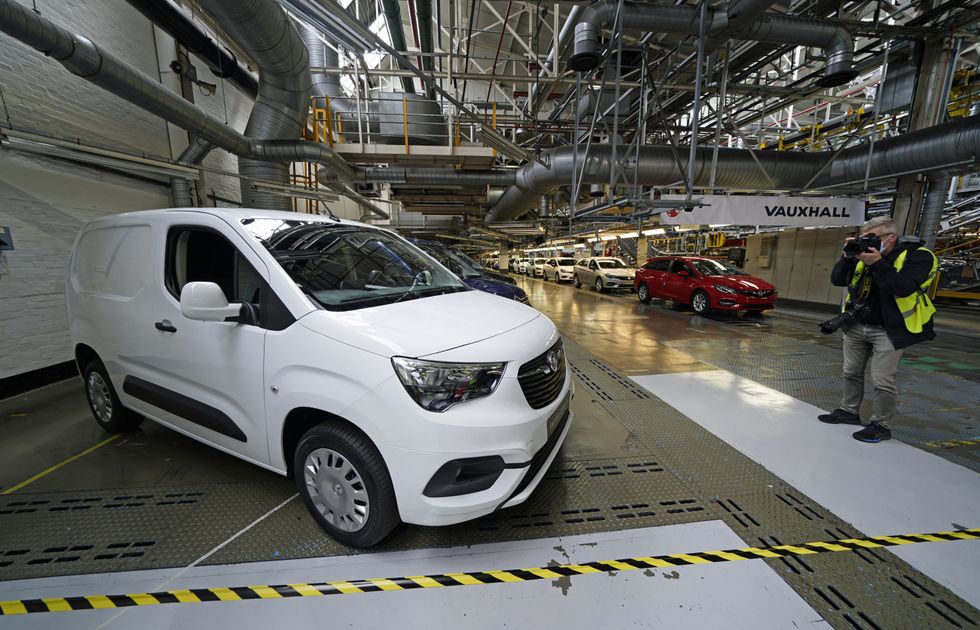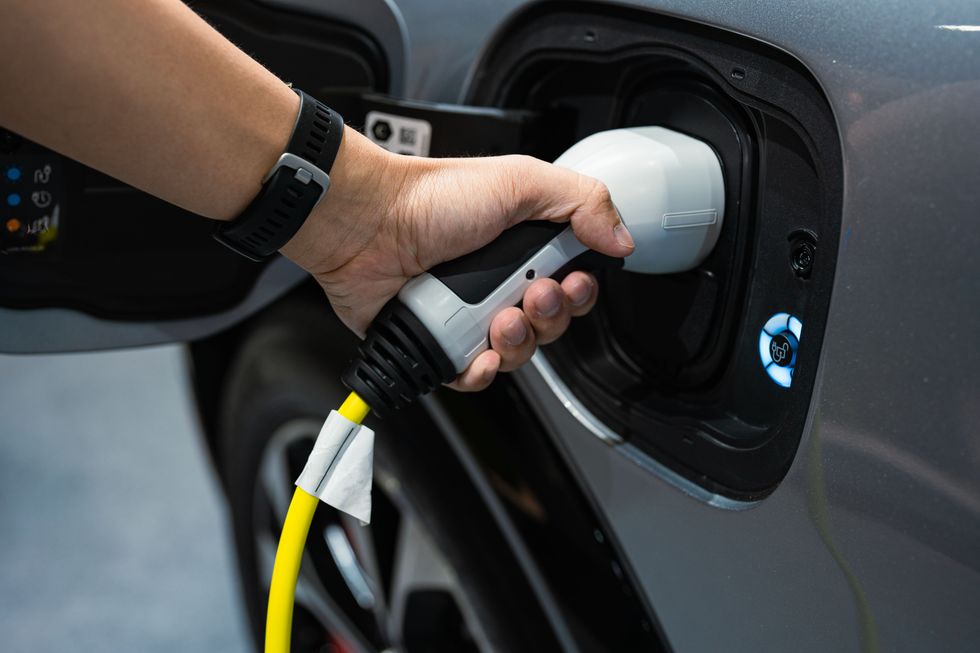Drivers demand 'decisive action' to make electric vehicles 'a realistic option' amid slumping sales
Experts are calling on the Government to introduce new measures to support electric vans
'For the transition to work, we need increased fiscal support, improved charging and the removal of regulatory barriers'
Don't Miss
Most Read
Trending on GB News
Experts have called on the Government and new Transport Secretary Louise Haigh to introduce sweeping changes to encourage the uptake of new electric and other zero emission vehicles.
A coalition of some of the most prominent brands in the electric vehicle industry has joined forces with major manufacturer Stellantis to urge the Government to boost appetite for electric vans.
The Zero Emission Van Plan calls for better charging infrastructure with van needs in mind, as well as the removal of barriers that prevent operators and drivers from making the switch.
A third aim would see increased fiscal support to make new and used electric vans more affordable for motorists around the UK to make the switch.
Do you have a story you'd like to share? Get in touch by emailingmotoring@gbnews.uk

Drivers could get a £5,000 grant towards an electric van
PAThere are a handful of Government grants available for small and large vans, with a maximum discount of £5,000 for vehicles that have CO2 emissions of less than 50g/km and can drive at least 50 miles without any emissions.
For small vans (less than 2,500kg), drivers can save £2,500 on popular brands like Citroen, Fiat, Mercedes and Nissan, while large vans (between 2,500kg and 4,250kg) can help costs drop by £5,000 on popular models from Ford, Peugeot and Volkswagen.
Despite this, industry experts believe more needs to be done to support motorists investing in electric vans to decarbonise the transport and motoring sector.
Around 3.4 million people rely on a van for their jobs, with the coalition highlighting the importance of the need for electric vans.
As part of the guidelines to meet the terms of the Zero Emission Vehicle mandate, 70 per cent of total van sales in the UK will need to be zero emission by the end of the decade.
There are doubts, however, given that Labour has pledged to reinstate the original 2030 deadline to ban the sale of petrol and diesel cars and vans, potentially throwing the ZEV mandate into question.
A spokesperson for the Zero Emission Van Plan lamented the fact that registrations for new electric vans have stalled, adding that it was from "an already low starting point".
They added that the ZEV mandate had stimulated a new supply of electric vehicles but demand from consumers continued to lag, as a result of high costs and a lack of Government incentives.
The spokesperson continued: "Van operators are struggling to make the transition work, facing barrier after barrier across vehicle quality, performance, cost, and charging infrastructure.
"The Zero Emission Van Plan is clear. For the transition to work, we need increased fiscal support, improved charging and the removal of regulatory barriers.
"We are calling on the new Government to take decisive action to make electric vans a realistic option for millions of drivers.”
The groups behind the Zero Emission Van Plan include the British Vehicle Rental and Leasing Association (BVRLA), Logistics UK, Recharge UK, the Association of Fleet Professionals (AFP) and The EV Cafe.
LATEST DEVELOPMENTS:
- British drivers risk traffic chaos this week as millions face closures along three major motorways
- Car insurance prices can plummet 'by 45 per cent' if drivers renew during nine-day period - 'Perfect time'
- DVLA issues fresh warning to drivers over number plate issue that could lead to fines - 'Be aware'

There are 3.4 million van drivers around the UK that will need to switch to electric in the coming years
GETTYThe Zero Emission Van Plan has invited Labour's Louise Haigh to visit an operator depot that has embraced electric vans to see the benefits of using cleaner vehicles.
A recent report from the Climate Change Committee reported that sales of electric vans remain "significantly off track", with a market share of just six per cent in 2023.
It added that for the UK to be on track for net zero, 100 per cent of all cars and vans sold would need to be zero emission, in addition to installations of electric vehicle chargers needing to treble by the end of the decade.








